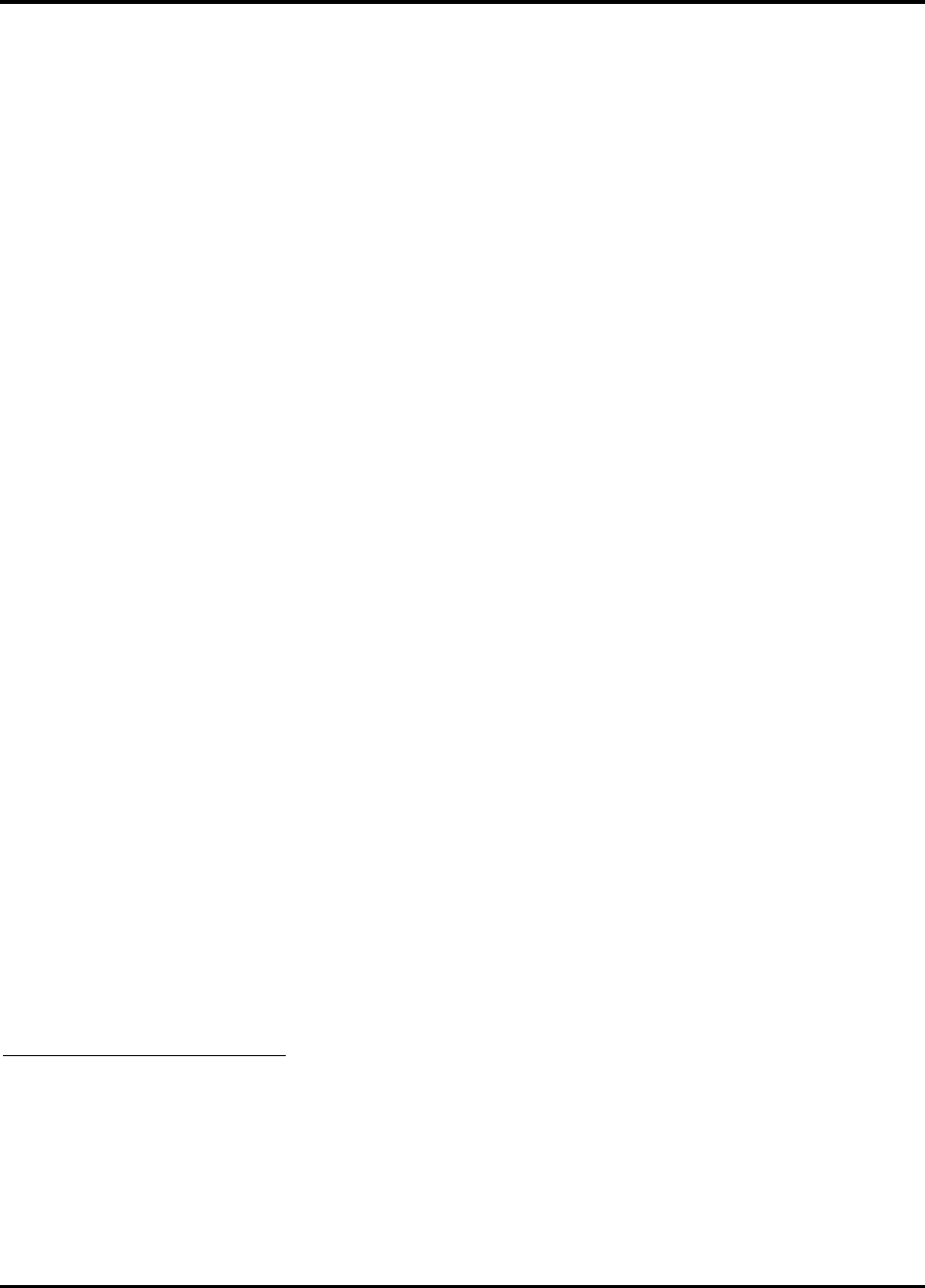
CFPB Consumer
Laws and Regulations FDCPA
CFPB Manual V.2 (October 2012) FDCPA 1
Fair Debt Collection Practices Act
1
The Fair Debt Collection Practices Act (FDCPA)(15 U.S.C. 1692 et seq.), which became effective
March 20, 1978, was designed to eliminate abusive, deceptive, and unfair debt collection practices.
In addition, the federal law (15 U.S.C. 1692 et seq.) protects reputable debt collectors from unfair
competition and encourages consistent state action to protect consumers from abuses in debt
collection. The Dodd-Frank Act granted rulemaking authority under the FDCPA to the Consumer
Financial Protection Bureau (CFPB)
2
and, with respect to entities under its jurisdiction, granted
authority to the CFPB to supervise for and enforce compliance with the FDCPA.
3
Debt That Is Covered
The FDCPA applies only to the collection of debt incurred by a consumer primarily for personal,
family, or household purposes. It does not apply to the collection of corporate debt or to debt
owed for business or agricultural purposes.
Debt Collectors That Are Covered
Under FDCPA, a “debt collector” is defined as any person who regularly collects, or attempts to
collect, consumer debts for another person or institution or uses some name other than its own
when collecting its own consumer debts. That definition would include, for example, an
institution that regularly collects debts for an unrelated institution. This includes reciprocal
service arrangements where one institution solicits the help of another in collecting a defaulted
debt from a customer who has moved.
Debt Collectors That Are Not Covered
An institution is not a debt collector under the FDCPA when it collects:
• Another’s debts in isolated instances.
• Its own debts it originated under its own name.
• Debts it originated and then sold, but continues to service (for example, mortgage and
student loans).
• Debts that were not in default when they were obtained.
• Debts that were obtained as security for a commercial credit transaction (for example,
accounts receivable financing).
1
These reflect FFIEC-approved procedures.
2
In December 2011, the CFPB restated the Federal Trade Commission’s implementing regulation at 12 CFR Part 1006 (76 Fed.
Reg. 78121)(December 16, 2011). The regulation only addresses the procedures for state application for exemption from the
provisions of the Act.
3
Dodd-Frank Act Secs. 1002(12)(H), 1024(b)-(c), and 1025(b)-(c); 12 U.S.C. Secs. 5481(12)(H), 5514(c), and 5515(c).

CFPB Consumer
Laws and Regulations FDCPA
CFPB Manual V.2 (October 2012) FDCPA 2
• Debts incidental to a bona fide fiduciary relationship or escrow arrangement (for
example, a debt held in the institution’s trust department or mortgage loan escrow for
taxes and insurance).
• Debts regularly for other institutions to which it is related by common ownership or
corporate control.
Debt collectors that are not covered also include:
• Officers or employees of an institution who collect debts owed to the institution in the
institution’s name.
• Legal process servers.
Communications Connected with Debt Collection –
15 U.S.C. 1692b and c
For communications with a consumer or third party with the collection of a debt, the term
“consumer” is defined to include the borrower’s spouse, parent (if the borrower is a minor),
guardian, executor, or administrator.
When, Where, and With Whom Communication is Permitted
Communicating with the Consumer
A debt collector may not communicate with a consumer at any unusual time (generally before 8
a.m. or after 9 p.m. in the consumer’s time zone) or at any place that is inconvenient to the
consumer, unless the consumer or a court of competent jurisdiction has already given permission
for such contacts. A debt collector may not contact the consumer at his or her place of
employment if the collector has reason to believe the employer prohibits such communications.
If the debt collector knows the consumer has retained an attorney to handle the debt, and can
easily ascertain the attorney’s name and address, all contacts must be with that attorney, unless
the attorney is unresponsive or agrees to allow direct communication with the consumer.
Ceasing Communication with the Consumer
When a consumer refuses, in writing, to pay a debt or requests that the debt collector cease further
communication, the collector must cease all further communication, except to advise the consumer
that:
• The collection effort is being stopped.
• Certain specified remedies ordinarily invoked may be pursued or, if appropriate, that a
specific remedy will be pursued.
Mailed notices from the consumer are official when they are received by the debt collector.

CFPB Consumer
Laws and Regulations FDCPA
CFPB Manual V.2 (October 2012) FDCPA 3
Communicating with Third Parties
The only third parties that a debt collector may contact when trying to collect a debt are:
• The consumer.
• The consumer’s attorney.
• A consumer reporting agency (if permitted by local law).
• The creditor.
• The creditor’s attorney.
• The debt collector’s attorney.
The consumer or a court of competent jurisdiction may, however, give the debt collector specific
permission to contact other third parties. In addition, a debt collector who is unable to locate a
consumer may ask a third party for the consumer’s home address, telephone number and place of
employment (location information). The debt collector must give his or her name and state that
he or she is confirming or correcting location information about the consumer. Unless
specifically asked, the debt collector may not name the collection firm or agency or reveal that
the consumer owes any debt.
No third party may be contacted more than once unless the collector believes that the
information from the first contact was wrong or incomplete and that the third party has since
received better information, or unless the third party specifically requests additional contact.
Contact with any third party by postcard, letter or telegram is allowed only if the envelope or
content of the communication does not indicate the nature of the collector’s business.
Validation of Debts – 15 U.S.C. 1692g
The debt collector must provide the consumer with certain basic information. If that
information was not in the initial communication and if the consumer has not paid the debt
five days after the initial communication, the following information must be sent to the
consumer in written form:
• The amount of the debt;
• The name of the creditor to whom the debt is owed;
• Notice that the consumer has 30 days to dispute the debt before it is assumed to be valid;
• Notice that upon such written dispute, the debt collector will send the consumer a
verification of the debt or a copy of any judgment; and

CFPB Consumer
Laws and Regulations FDCPA
CFPB Manual V.2 (October 2012) FDCPA 4
• Notice that if, within the 30-day period, the consumer makes a written request for the
name and address of the original creditor, if it is different from the current creditor, the
debt collector will provide that information.
If, within the 30-day period, the consumer disputes in writing any portion of the debt or requests
the name and address of the original creditor, the collector must stop all collection efforts until
he or she mails the consumer a copy of a judgment or verification of the debt, or the name and
address of the original creditor, as applicable.
Prohibited Practices
Harassing or Abusive Practices – 15 U.S.C. 1692d
A debt collector in collecting a debt, may not harass, oppress, or abuse any person. For example,
a debt collector may not:
• Use or threaten to use violence or other criminal means to harm the physical person,
reputation, or property of any person.
• Use obscene, profane, or other language that abuses the hearer or reader.
• Publish a list of consumers who allegedly refuse to pay debts, except to a consumer
reporting agency or to persons meeting the requirements of Section 603(f) or 604(3) of
the Act.
• Advertise a debt for sale to coerce payment.
• Annoy, abuse, or harass persons by calling repeatedly their telephone number or allowing
their telephones to ring continually.
• Make telephone calls without properly identifying oneself, except as allowed to obtain
location information.
False or Misleading Representations – 15 U.S.C. 1692e
A debt collector, in collecting a debt, may not use any false, deceptive, or misleading
representation. For example, a debt collector may not:
• Falsely represent or imply that he or she is vouched for, bonded by, or affiliated with the
United States or any state, including the use of any badge, uniform, or similar
identification.
• Falsely represent the character, amount, or legal status of the debt, or of any services
rendered, or compensation he or she may receive for collecting the debt.
• Falsely represent or imply that he or she is an attorney or that communications are from
an attorney.

CFPB Consumer
Laws and Regulations FDCPA
CFPB Manual V.2 (October 2012) FDCPA 5
• Threaten to take any action which is not legal or intended.
• Falsely represent or imply that nonpayment of any debt will result in the arrest or
imprisonment of any person or the seizure, garnishment, attachment, or sale of any
property or wages of any person, unless such action is lawful and intended by the debt
collector or creditor.
• Falsely represent or imply that the sale, referral, or other transfer of the debt will cause
the consumer to lose a claim or a defense to payment, or become subject to any practice
prohibited by the FDCPA.
• Falsely represent or imply that the consumer committed a crime or other conduct to
disgrace the consumer.
• Communicate, or threaten to communicate, false credit information or information which
should be known to be false, including not identifying disputed debts as such.
• Use or distribute written communications made to look like or falsely represented to be
documents authorized, issued, or approved by any court, official, or agency of the United
States or any state if it would give a false impression of its source, authorization, or
approval.
• Use any false representation or deceptive means to collect or attempt to collect a debt or
to obtain information about a consumer.
• Fail to disclose in the initial written communication with the consumer, and the initial
oral communication if it precedes the initial written communication, that the debt
collector is attempting to collect a debt and that any information obtained will be used for
that purpose. In addition, the debt collector must disclose in subsequent communications
that the communication is from a debt collector. (These disclosures do not apply to a
formal pleading made in connection with a legal action.)
• Falsely represent or imply that accounts have been sold to innocent purchasers.
• Falsely represent or imply that documents are legal process.
• Use any name other than the true name of the debt collector’s business, company, or
organization.
• Falsely represent or imply that documents are not legal process or do not require action
by the consumer.
• Falsely represent or imply that he or she operates or is employed by a consumer reporting
agency.

CFPB Consumer
Laws and Regulations FDCPA
CFPB Manual V.2 (October 2012) FDCPA 6
Unfair Practices – 15 U.S.C. 1692f
A debt collector may not use unfair or unconscionable means to collect or attempt to collect a
debt. For example, a debt collector may not:
• Collect any interest, fee, charge, or expense incidental to the principal obligation unless it
was authorized by the original debt agreement or is otherwise permitted by law.
• Accept a check or other instrument post-dated by more than five days, unless he or she
notifies the consumer, in writing, of any intention to deposit the check or instrument.
That notice must be made not more than ten or less than three business days before the
date of deposit.
• Solicit a post-dated check or other post-dated payment instrument to use as a threat or to
institute criminal prosecution.
• Deposit or threaten to deposit a post-dated check or other post-dated payment instrument
before the date on the check or instrument.
• Cause communication charges, such as those for collect telephone calls and telegrams, to
be made to any person by concealing the true purpose of the communication.
• Take or threaten to repossess or disable property when the creditor has no enforceable
right to the property or does not intend to do so, or if, under law, the property cannot be
taken, repossessed, or disabled.
• Use a postcard to contact a consumer about a debt.
• Use any language or symbol, other than the debt collector’s address, on any envelope
when communicating with a consumer; a debt collector may use its business name if such
name does not indicate it is in the debt collection business.
Multiple Debts – 15 U.S.C. 1692h
If a consumer owes several debts that are being collected by the same debt collector, payments
must be applied according to the consumer’s instructions. No payment may be applied to a
disputed debt.
Legal Actions By Debt Collectors – 15 U.S.C. 1692i
A debt collector may file a lawsuit to enforce a security interest in real property only in the
judicial district in which the real property is located. Other legal actions may be brought only in
the judicial district in which the consumer lives or in which the original contract creating the debt
was signed.
Furnishing Certain Deceptive Forms – 15 U.S.C. 1692j
No one may design, compile and/or furnish any form that creates the false impression that
someone other than the creditor (for example, a debt collector) is participating in the collection
of a debt.

CFPB Consumer
Laws and Regulations FDCPA
CFPB Manual V.2 (October 2012) FDCPA 7
Civil Liability
A debt collector who fails to comply with any provision of the FDCPA is liable for:
• Any actual damages sustained as a result of that failure;
• Punitive damages as allowed by the court:
○ in an individual action, up to $1,000; or
○ in a class action, up to $1,000 for each named plaintiff and an award to be divided
among all members of the class of an amount up to $500,000 or 1 percent of the debt
collector’s net worth, whichever is less;
• Costs and a reasonable attorney’s fee in any such action.
In determining punitive damages, the court must consider the nature, frequency and persistency
of the violations and the extent to which they were intentional. In a class action, the court must
also consider the resources of the debt collector and the number of persons adversely affected.
Defenses
A debt collector is not liable for a violation if a preponderance of the evidence shows it was not
intentional and was the result of a bona fide error that arose despite procedures reasonably designed
to avoid any such error. The collector is also not liable if he or she, in good faith, relied on an
advisory opinion of the CFPB or on prior advisory opinions of the Federal Trade Commission, even
if the ruling is later amended, rescinded, or determined to be invalid for any reason.
Jurisdiction and Statute of Limitations
Action against debt collectors for violations of the FDCPA may be brought in any appropriate
U.S. district court or other court of competent jurisdiction. The consumer has one year from the
date on which the violation occurred to start such as action.
Relation to State Law
The FDCPA preempts state law only to the extent that a state law is inconsistent with the
FDCPA. A state law that is more protective of the consumer is not considered inconsistent with
the FDCPA.
Exemption for State Regulation
The CFPB may exempt certain classes of debt collection practices from the requirements of the
FDCPA if it has determined that state laws impose substantially similar requirements and that
there is adequate provision for enforcement.

CFPB Consumer
Laws and Regulations FDCPA
CFPB Manual V.2 (October 2012) FDCPA 8
REFERENCES
Laws
15 U.S.C. 1692 et seq. Fair Debt Collection Practices Act

CFPB
Examination Procedures FDCPA
CFPB Manual V.2 (October 2012) Procedures 1
Fair Debt Collection
Practices Act
1
Examination Objectives
• To determine the adequacy of the institution's internal procedures and controls to assure con-
sistent compliance with FDCPA.
• To determine if the institution complies with the requirements of the FDCPA in collecting or
attempting to collect third-party consumer debts.
Examination Procedures
The following procedures are to be completed through interviews with personnel knowledgeable
about and directly engaged in the institution's collection activities and through reviews of any
written collection procedures, reciprocal collection agreements, collection letters, dunning notic-
es, envelopes, scripts used by collection personnel, validation notices, individual collection files,
complaint files, and other relevant records.
1. Determine if the institution is a debt collector under FDCPA.
[Click&type]
2. Determine if the institution has established internal procedures and controls to
ensure compliance with the FDCPA.
[Click&type]
1
These reflect FFIEC-approved procedures.
Exam Date:
[Click&type]
Prepared By:
[Click&type]
Reviewer:
[Click&type]
Docket #:
[Click&type]
Entity Name:
[Click&type]

CFPB
Examination Procedures FDCPA
CFPB Manual V.2 (October 2012) Procedures 2
3. If the institution has acted or is acting as a debt collector under the FDCPA,
determine if the institution has:
a. Communicated with the consumer or third parties in any prohibited manner
(15 U.S.C. 1692b and c);
b. Furnished the written validation notice within the required time period and
otherwise complied with applicable validation requirements (15 U.S.C.
1692g);
c. Used any harassing, abusive, unfair, or deceptive collection practice
prohibited by FDCPA (15 U.S.C. 1692d, 1692e, 1692f, and 1692j);
d. Collected any amount not expressly authorized by the debt instrument
creating the debt or by state law (15 U.S.C. 1692f(1));
e. Applied all payments received as instructed and, where no instruction was
given, applied payments only to undisputed debts (15 U.S.C. 1692h);
f. Filed suit in an authorized forum if the institution sued to collect the debt (15
U.S.C. 1692i).
[Click&type]
Examiner’s Summary, Recommendations, and Comments
[Click&type]
